Integrals
Integrals are the values of the function obtained through the integration process. Integration is mostly used to compute the volumes of three-dimensional objects and to calculate the areas of two-dimensional regions.
There are two types of integrals:
Definite Integrals
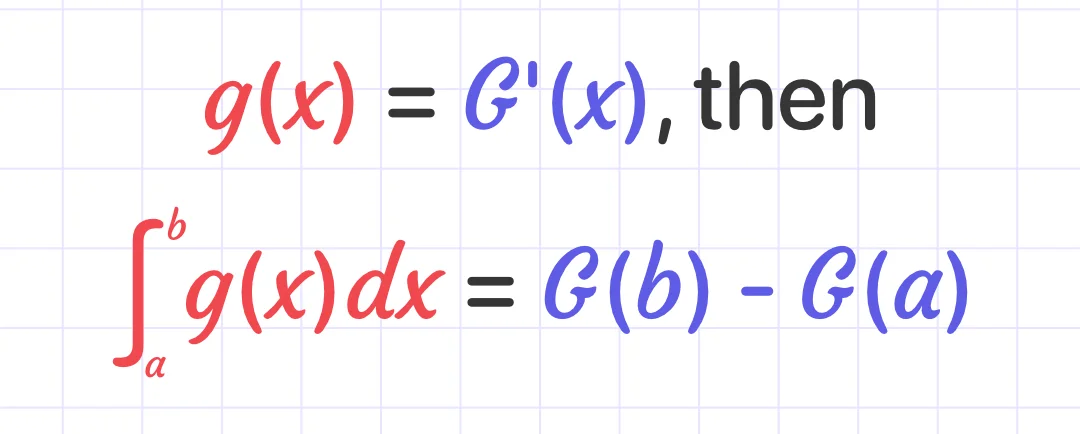
The definite integrals are used to calculate the area under a curve with respect to one of the coordinate axes and within the specified limits.
The definite integral formula is as follows:
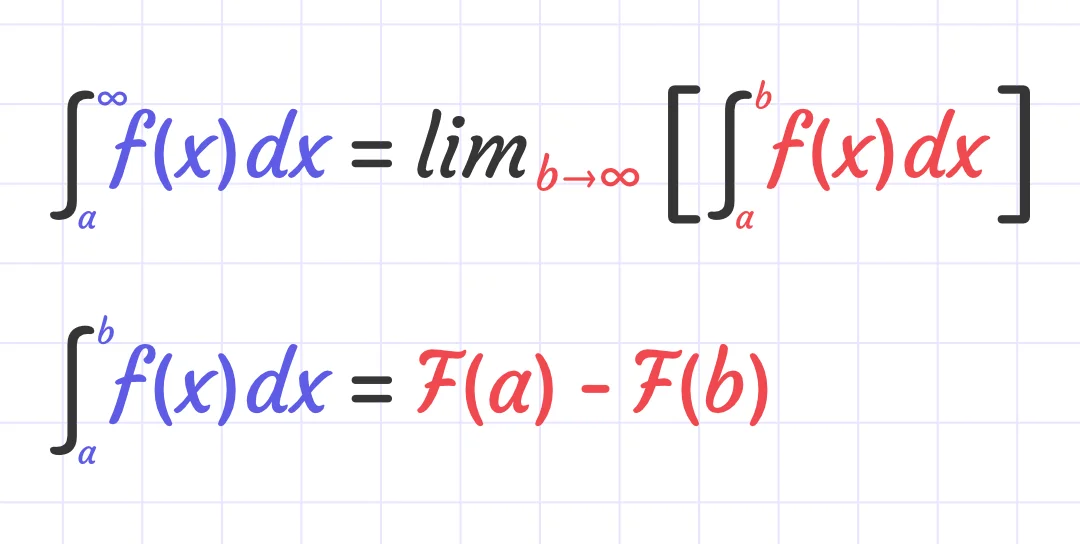
Indefinite Integrals
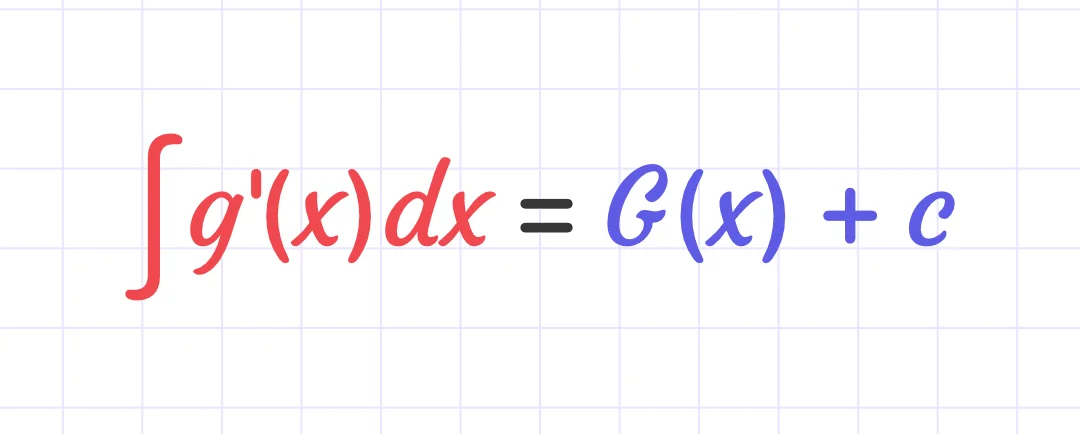
These integrals lack a pre-existing value of limits, making the final value of the integral indefinite.
There are various methods for calculating indefinite integrals:
Integration by substitution
If u is a function of x, then u' = du/dx.

Integration by parts
If two functions are of the product form,

Integration by partial fractions
To find ∫ f(x)/g(x) dx, decompose this improper rational function to a proper rational function and then integrate.
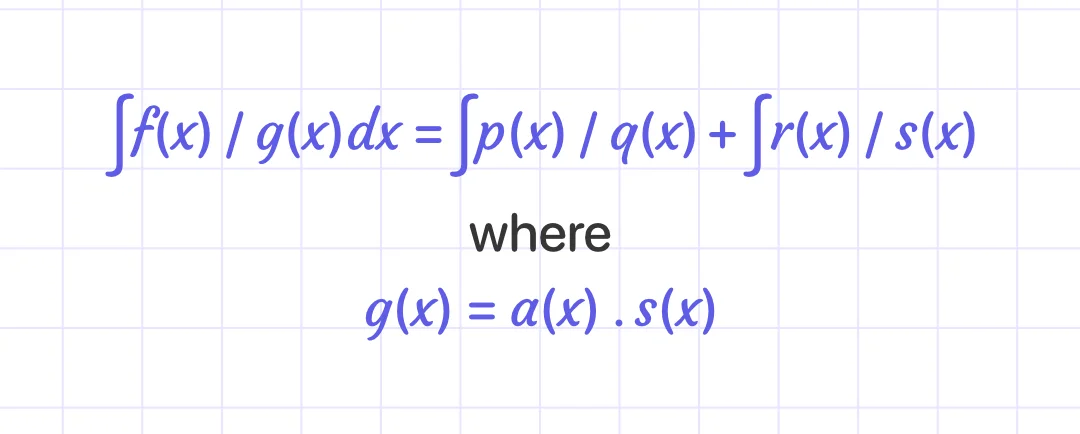
First Fundamental Theorem of Integrals
The integral of the derivative is the function; or, more precisely, it’s the difference between two outputs of that function.

where the function is continuous on [a,b].
Then A'(x) = f(x) for all x ϵ [a,b].
Second Fundamental Theorem of Integrals
If f is a continuous function and c is any constant, then f has a unique antiderivative A that satisfies A ( c ) = 0, and that antiderivative is given by the rule
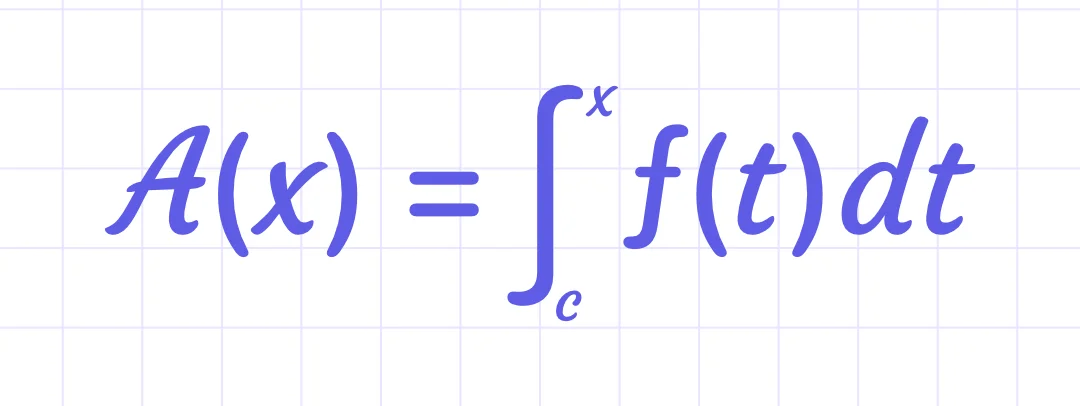
Example 1:
Calculate the definite integral:
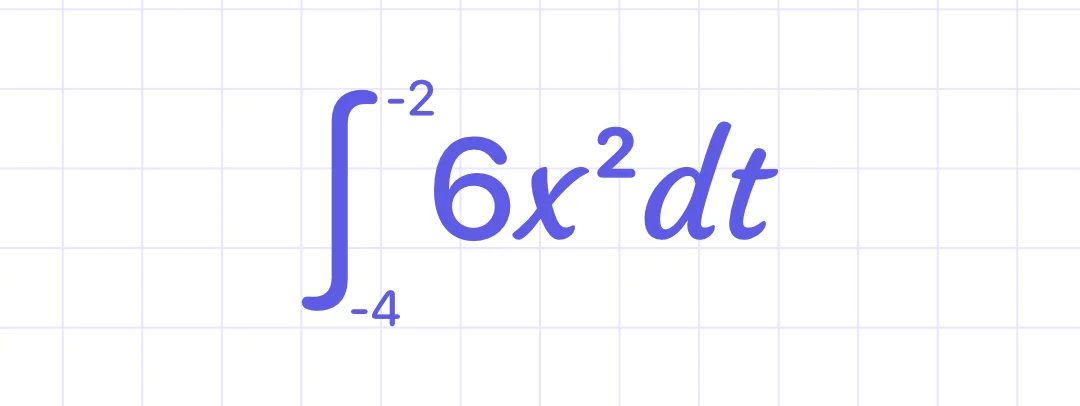
Solution:

Answer: 112
Example 2:
Find the exact answer to $\int_1^2 \frac{xe^x - x^3 + 1}{x} dx$.
Show all work with an organized solution.
Solution:
Divide the fraction into single polynomial terms and finish integration following next rules:
- ∫(f+-g)dx = ∫fdx +- ∫gdx+-...∫hdx
- ∫xndx = (xn+1/(n+1) + c
- ∫dx/x = ln(abs(x)) + c
- ∫nxdxxdx = e x x+c
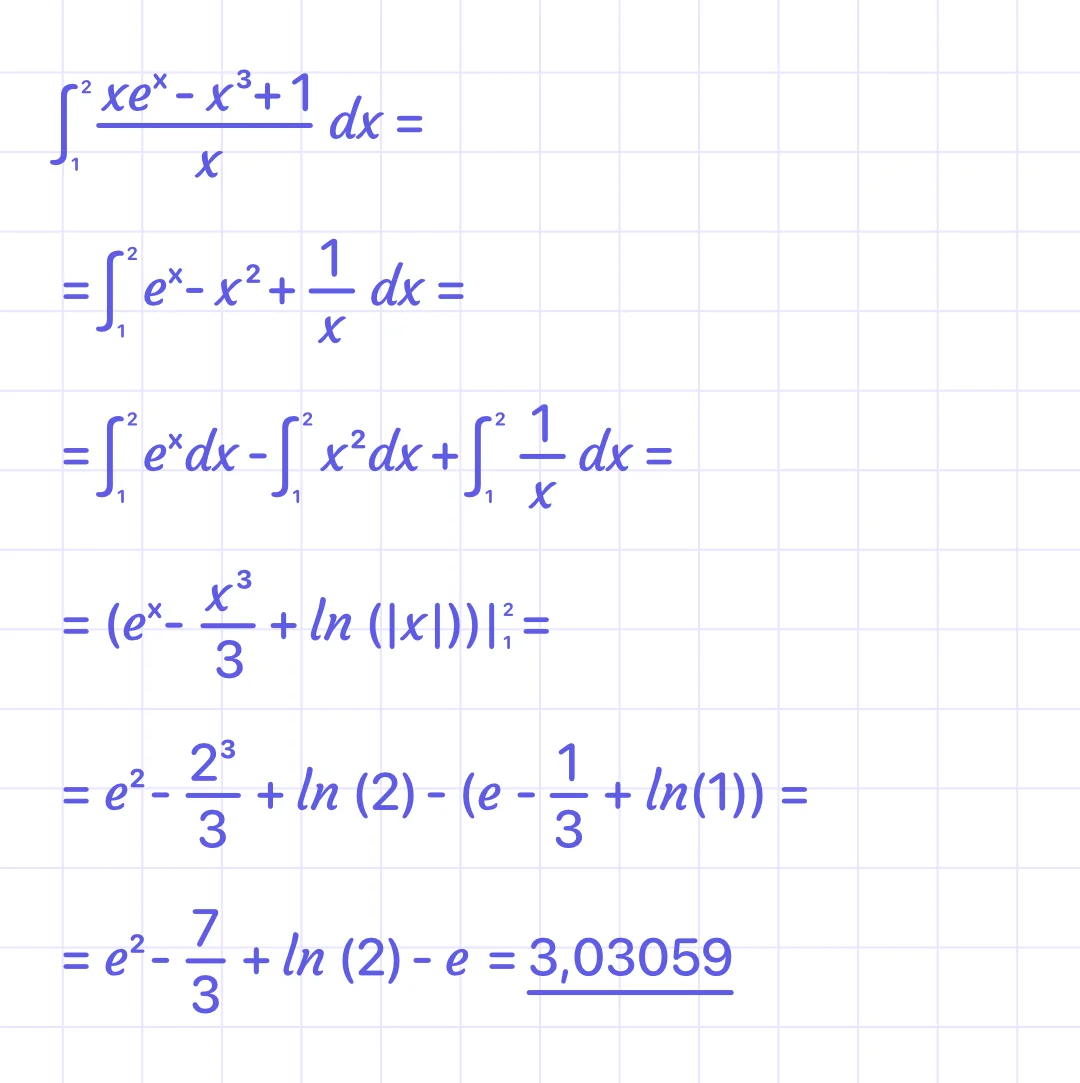
Answer: 3.03059